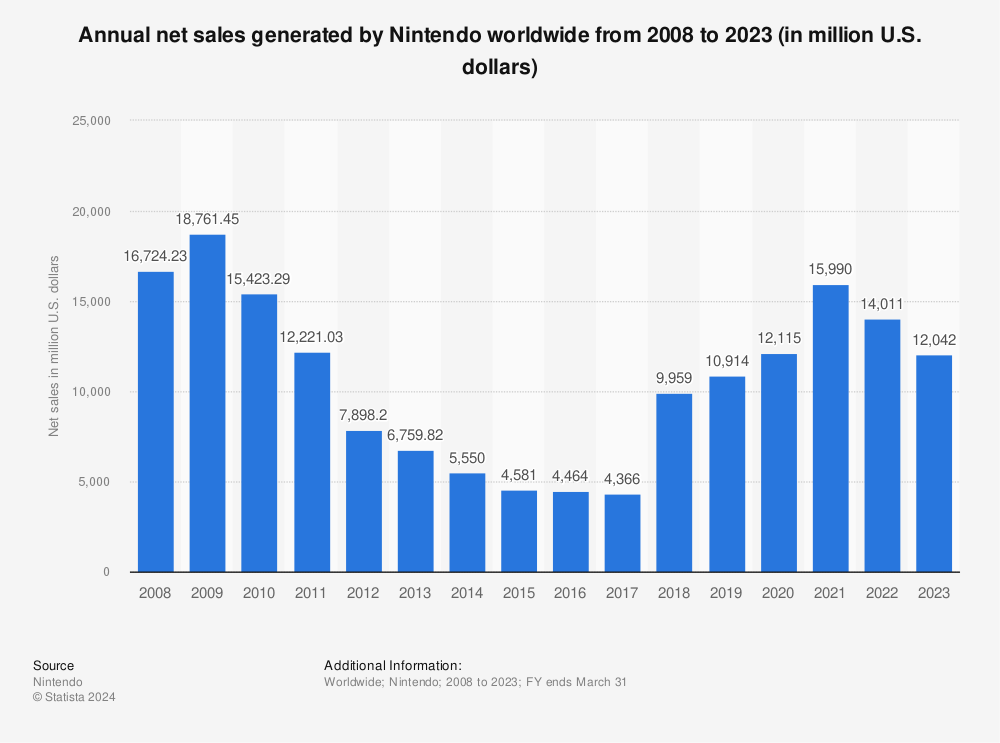Smash is pretty much guaranteed to pass 20 million lifetime at this point, and amazingly BOTW looks to have a decent shot at doing so as well.
Very keen to see how Luigi's Mansion 3 fares; LM2 did just over 6 million on 3DS, folllowing the trend so far of software selling far better on Switch than prior platforms, could LM3 perhaps (eventually) join the 10 million plus club? I reckon it has a shot.
Existing User Log In
New User Registration
Register for a free account to gain full access to the VGChartz Network and join our thriving community.


























































